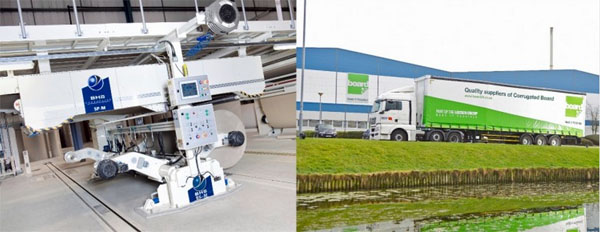Board24 Orders BHS Corrugator as Part of £9 million Growth Plan
![]() Print this Article | Send to Colleague
Print this Article | Send to Colleague
The selection of a full line BHS corrugator is a first for Board24, and Eric Marshall, operations director at Preston, is excited by the benefits the new line will bring; "We have, in conjunction with BHS, specified the corrugator to offer industry leading performance while recognizing the unique requirements of the U.K. sheet plant market," Marshall says.
The machine includes the very latest developments for the production of a wide range of board grades – from the lightest recycled papers and specialty coated papers, to heavy kraft papers. These can be produced at the highest production speeds with board performance levels that will be second to none in the U.K. sheet feeding sector.

The machine includes, at the wet end, a Modul Facer for making flute changes in less than five minutes. The DF-P double facer with thin hotplates and unique Platerol automatic loading system gives optimum production speeds of all board grades with best possible quality. At the dry end, the machine has a fully automatic SR-S slitter scorer with second-generation swing change for high speed order changes and maximum flexibility, with multi score profiles. The duplex cut-off knife has the best speed curve on the market and the stackers offer the fastest order change cycle times available.
The machine also includes a Zero Defect System (ZDS), which identifies and removes all defective sheets produced from the wet end of the machine at line speed. This unique function will give significant benefits to the Board24 business in a marketplace whose end users are constantly tightening the tolerance’s for defective products from corrugated producers.
The development of the individual corrugator units and of the process control of the entire corrugator has made it possible to realize average line speeds of more than 300 m/min., including all order and quality changes. These developments will also optimize energy consumption in addition to impressive reductions in manufacturing unit cost.


